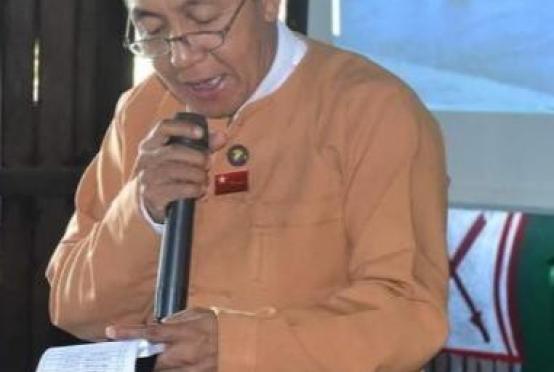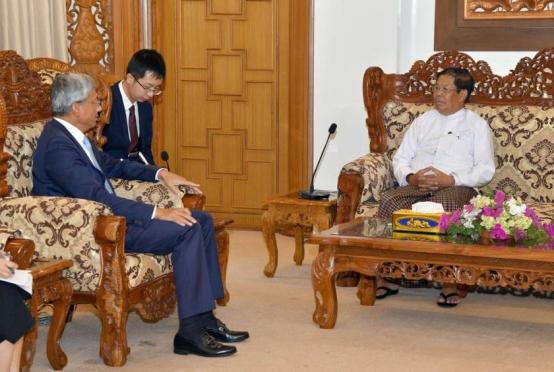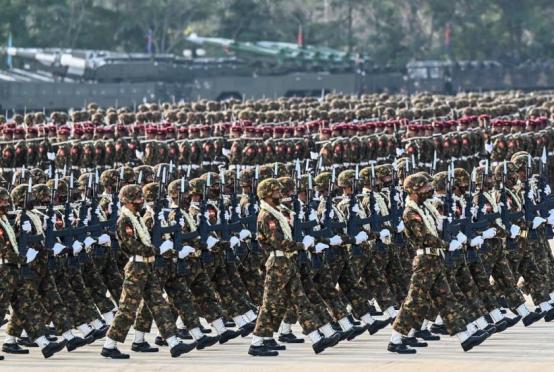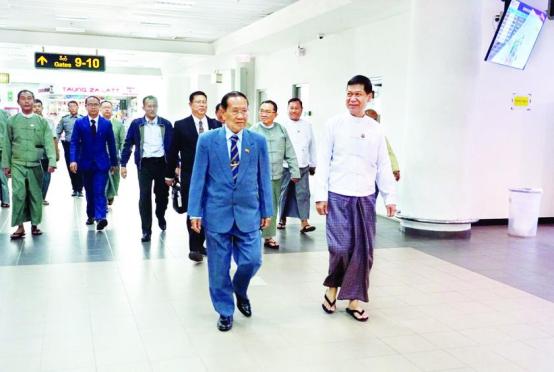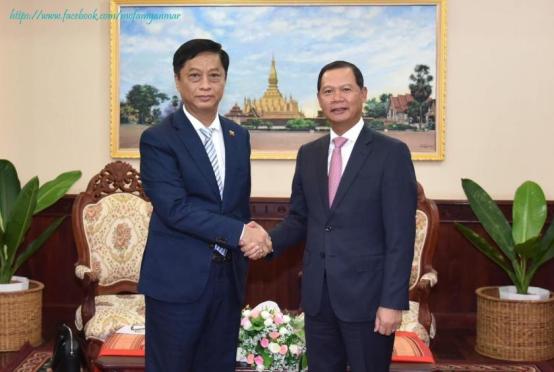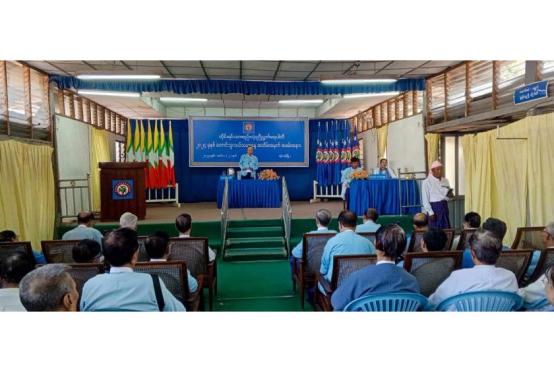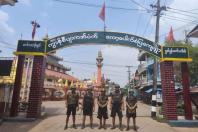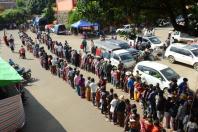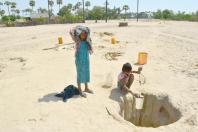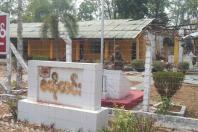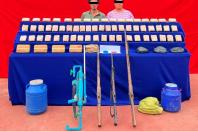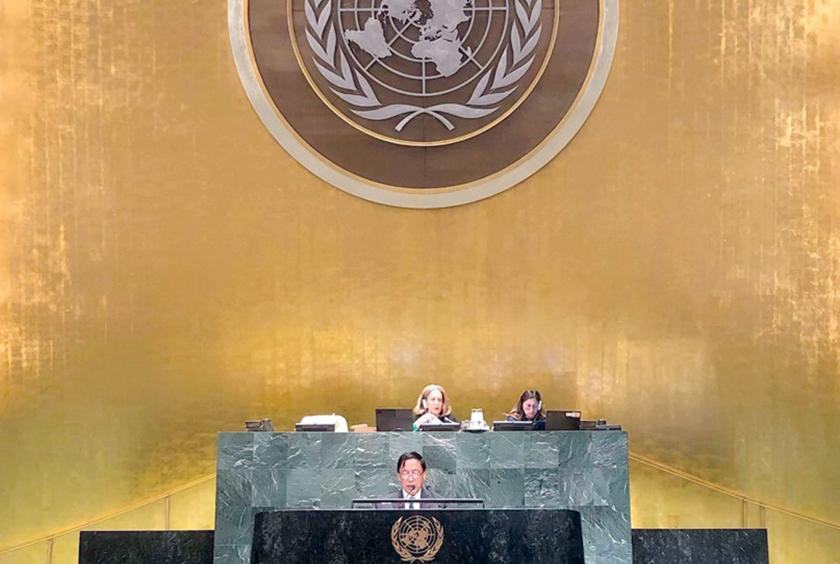
My delegation wishes to state that Myanmar’s participation in the debate of this Agenda Item shall not be, in anyway, construed as Myanmar’s recognition of the International Criminal Court (ICC) nor the Court’s jurisdiction over my country, Myanmar, which is not a party to the Rome Statue. Paragraphs 38-40, and 43-45 of the ICC Report (A/74/324) covers the account of the illegitimate attempts by the ICC Prosecutor to open a case against Myanmar for the authorization of an investigation into alleged deportation of so called “Rohingyas” people from Myanmar to Bangladesh, said Ambassador Hau Do Suan, Permanent Representative of the Republic of the Union of Myanmar to the United Nations.
Following the case built up by the Prosecutor, the Pre-Trial Chamber I decided on 6 September 2018 that the Court may exercise jurisdiction over the alleged deportation of the so called Rohingya people from Myanmar (a State not party to the Statue) to Bangladesh. Furthermore, the Prosecutor requested Pre-Trial Chamber III to authorize investigation against Myanmar. The Government of Myanmar strongly rejects the ICC’s ruling of 6 September 2018. The ruling itself is the result of faulty procedure and of dubious legal merit. My delegation would like to reiterate our firm position that Myanmar is under no obligation to respect the ruling of the Court since it has no jurisdiction over Myanmar. Now here in the ICC Charter does it say that the Court has jurisdiction over State not a party to the Statue, said Ambassador Hau Do Suan.
It is obvious that the Prosecutor clearly disregarded legal merits and Myanmar Government’s determination and efforts to resolve the present humanitarian problems of Rakhine State, particularly on the repatriation of the displaced people. What the ICC Prosecutor is attempting to do is to override the principles of respect for national sovereignty, territorial integrity and non-interference in the internal affairs of states. She blatantly acted in contravention of the principle enshrined in the UN Charter and recalled in the ICC Charter’s Preamble. The Prosecutor has built up the case with politically motivated intent and emotional self-interest. The Prosecutor’s request for investigation excludes the atrocity crimes committed by the Arakan Rohingya Salvation Army (ARSA) against the Hindus and other ethnic people in Rakhine. She deliberately omitted the undisputed fact that ARSA’s actions precipitated the mass displacement. In addition, the Prosecutor relies heavily on human rights reports that contain factual errors and unsubstantiated narratives, said Ambassador Hau Do Suan.
The issue of Rakhine is neither an issue of religious persecution nor act of deporting a group of people out of the country. The Government of Myanmar strongly rejects labeling the issue as crimes against humanity or ethnic cleansing. In fact, it is a political and economic issue involving cross-border migration since colonial time when the British brought in people from Bengal, primarily from Chittagong region to Rakhine. There was also another wave of mass migration across the border during Bangladesh’s independence war in 1971. The immigration problem in Rakhine was also exacerbated by the poverty, lack of rule of law and security. There has long been a deep rooted tensions, mutual mistrust and fear between the local ethnic communities and the migrant community. The democratic government of Myanmar had initiated to solve this long-neglected problem by setting up the Rakhine Advisory Commission led by Dr. Kofi Annan. On the day the Commission presented its recommendation, ARSA launched multiple armed attacks on dozens of security posts in Northern Rakhine thereby, creating humanitarian crisis of massive out flow of people to Bangladesh. There has never been deportation of people from Rakhine to anywhere. ARSA was the real culprit of causing the massive displacement. The Government of Myanmar is working hard in cooperation with Bangladesh, UNDP, UNHCR and ASEAN as well as with the help of our friends from the region for voluntary repatriation of the displaced people from Rakhine in safety and dignity. The threat of ARSA is a major impediment to the repatriation of the displace persons and restoration of security, peace and harmony in Rakhine. Despite the intimidation and threats by ARSA, over 400 people have so far returned on their own free will and with their own arrangements. We welcome any verified bona fide former residents returning to Rakhine. We shall continue to implement safe, dignified and voluntary return of the displaced people in accordance with the signed bilateral agreements and arrangements between Myanmar and Bangladesh, said Ambassador Hau Do Suan.
With regard to the accountability issue, Myanmar is determined to address the accountability for all crimes committed by anyone, anywhere in the territory of Myanmar. We have set up the Independent Commission of Enquiry to investigate alleged violations of human rights following ARSA terrorist attacks in Rakhine in 2016 and 2017.The Commission is preparing its report and will submit it to the President with recommendations for further action. We are willing and able to address the accountability, said Ambassador Hau Do Suan.
The over-extended application of jurisdiction challenges the fundamental principle of legal certainty and is contrary to accepted principles of public international law. It has created a dangerous precedent and erodes the moral authority of the Court. My delegation strongly rejects unlawful call for referral of Myanmar to the ICC by some member states, particularly by the delegation of Canada in her statement in this Hall earlier of the day. We have serious question about the true intention and sincerity of those supporting the ICC prosecutor’s dubious action to bring Myanmar to the ICC, who herself is currently facing a formal complaint to suspend her duty for allegedly committing serious human rights violations and crimes against humanity during the rule of military dictatorship between 1994 and 2002in her own country, Gambia, said Ambassador Hau Do Suan.
Edited by WH

